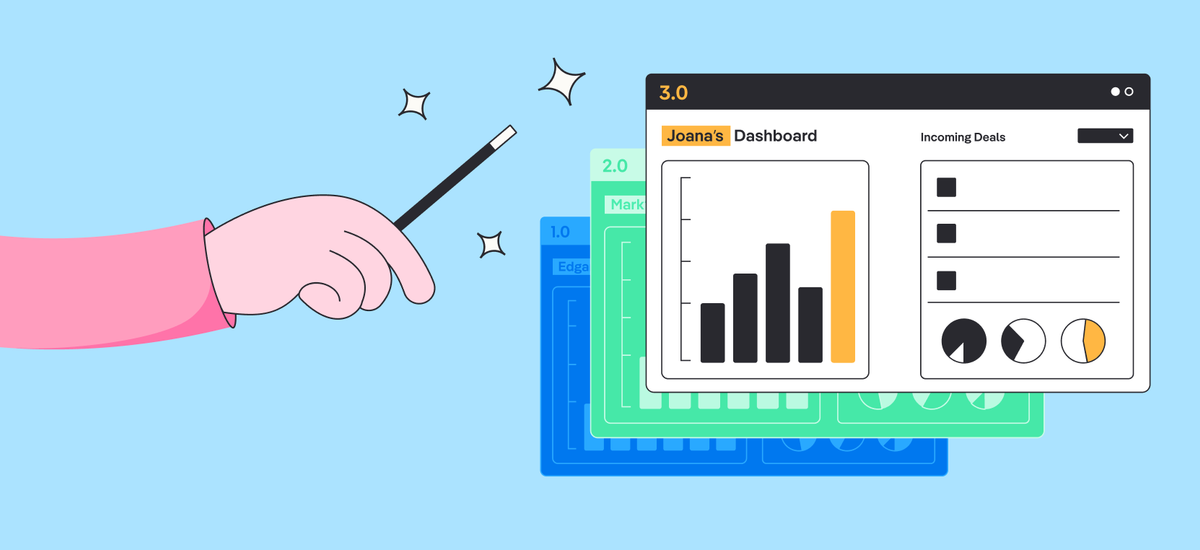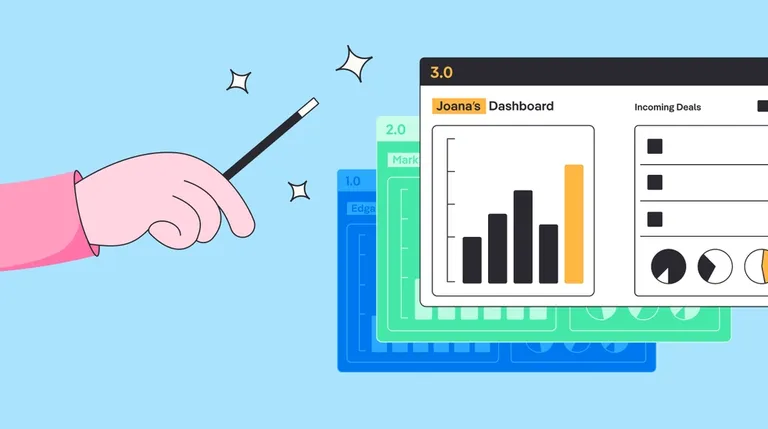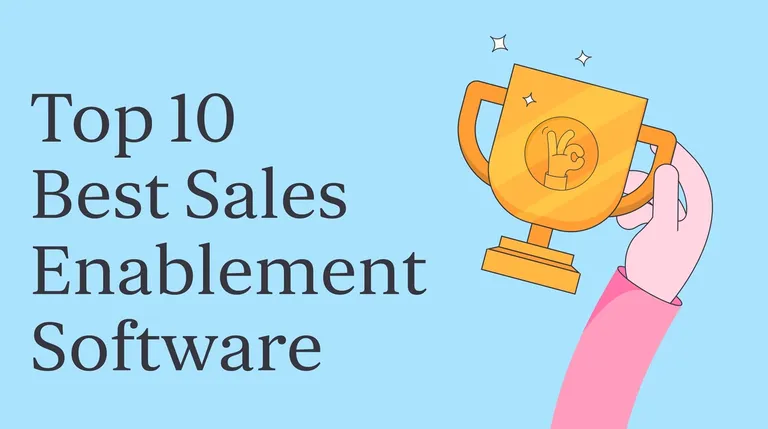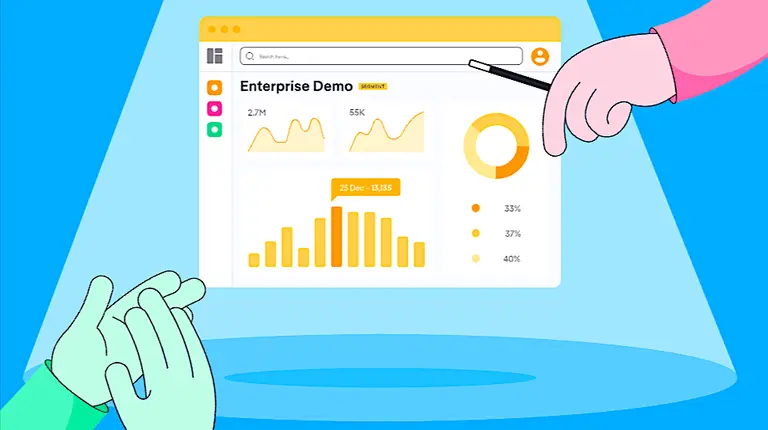B2B presales teams are busier than ever—and not always in the right ways. Many teams find that demo requests are piling up as technical validation becomes a non-negotiable part of the buying process. More volume, however, doesn't always mean better outcomes. Without a clear strategy in place, presales ends up reacting to this demand instead of guiding it—and that creates friction across the sales cycle.
Research shows that Solutions Engineers (SEs) are now delivering 40% more demos weekly year over year—yet 30 to 50% of those demos are unqualified. The increased volume shows a growing demand for technical validation but also highlights a lack of processes to prioritize demo requests. To scale effectively, companies need structured presales systems that help manage demand, improve demo readiness, and support a more strategic use of SE resources.
Presales enablement offers teams a better path forward. It provides the structure and support they need to keep up with growing deal complexity. When presales teams have the right tools and systems, they add real momentum to the sales cycle and create more consistent, confident buyer experiences.
What Is Presales Enablement?
Presales enablement equips technical sales teams with the tools, systems, content, and training they need to operate effectively across the sales cycle. It ensures they're not starting from scratch every time a buyer needs to evaluate the product. Instead, it standardizes how presales teams run demos, deliver technical proof, and handle product-level questions with confidence.
While it's often grouped with sales enablement, the focus is fundamentally different. Sales enablement helps AEs deliver the pitch. Presales enablement supports everything that happens when the conversation shifts to product depth—when buyers need to see how it works, ask the presales engineer tough questions, or confirm that the proverbial shoe fits.
Presales is often the turning point in complex software sales. It's where buyers assess solutions to determine:
- Does it suit our needs and solve our pain points?
- Does it work within our business and technical environment?
- Do its features and benefits justify the investment?
Without a strong presales enablement strategy, teams waste time creating materials and responding to ad hoc requests. With effective systems, they can operate more efficiently and directly contribute to revenue growth.

Benefits of Presales Enablement
Presales enablement provides many benefits, including:
- Increases Technical Win Rates - With better preparation, presales teams can clearly demonstrate how the product meets buyer needs, which leads to more confident technical approvals.
- Shortens Sales Cycles - Standardized demo workflows and technical templates make it easier to respond quickly to requests, which reduces delays and keeps deals moving forward.
- Boosts Presales Team Efficiency - Reusable demos, content libraries, and automation tools reduce prep time and minimize repetitive work so presales can support more opportunities without overextending the team.
- Improves Sales and Presales Alignment - Shared demo assets and clearly defined processes improves sales and presales alignment during handoffs, which reduces confusion and creates a more consistent buyer experience.
Enables Measurement and Coaching - Tracking how demos and evaluations perform gives leaders a clear view of what's working and what's not—whether at the individual level or across the entire presales process. That visibility opens the door to continuous improvement over time.

6 Core Components of a Strong Presales Enablement Strategy
Building a robust presales enablement strategy includes these foundational components:
1. Demo Infrastructure
Demo infrastructure supports every technical touchpoint in the sales cycle. This includes stable environments, customizable workspaces, sandbox access, and automation tools that reduce manual setup. Buyer-facing experiences—like self-guided tours or click-through demos—also play a growing role in qualifying interest before an SE is involved.
Using a platform like Demostack is key to building this foundation. It helps presales teams deliver polished, consistent demos in multiple formats without pulling in engineering or having to recreate assets from scratch.
2. Presales Content Library
Centralized content makes it easier for presales teams to deliver the right message at the right time. These assets include technical decks, product briefs, competitive responses, RFP templates, evaluation frameworks, and a demo library. A robust library also supports personalization by including clear guidance on how to adjust demos or materials based on buyer role, industry, or use case.
3. Sales Collaboration Tools
Alignment between sales and presales teams starts with sharing systems. Playbooks, qualification frameworks, and structured feedback channels keep both teams aligned from discovery through close. These tools help eliminate disconnects and keep the focus on the buyer experience.

4. Knowledge Management
As an organization's presales team grows, critical information can become more challenging to access and reuse. A dedicated knowledge management system is crucial for capturing technical answers, past configurations, successful demo flows, and common objections. This invaluable resource helps teams move faster and avoid duplication. It also preserves institutional knowledge that might otherwise be lost, deal to deal.
5. Training and Coaching
Effective presales enablement includes skill development. Onboarding programs help new team members ramp up quickly, while scenario-based practice and demo certifications provide experienced SEs with room to improve. Ongoing coaching helps your team stay sharp as products evolve, and buyer expectations shift.
6. Performance Metrics and Insights
Operational visibility helps teams improve and scale. Tracking demo volume, time-to-demo, win rates, and engagement data gives presales leaders a focused picture of what's working. These insights support better coaching, smarter resource planning, and more strategic decision-making.

5 Steps to Get Presales Enablement Right
Building an effective presales enablement strategy takes structure and the right systems to support your technical team's growing role in the sales cycle. Here's how to put a scalable program in place—and set it up for long-term impact:
1. Start with Cross-Functional Alignment
Before investing in tools or content, get your sales and presales aligned on how they work together. Start the process with clear definitions of roles and responsibilities across the sales cycle, from discovery and qualification through demo delivery and technical validation.
Agree on shared KPIs, such as technical win rates or time-to-demo, and make sure both teams understand how their work connects. Involve revenue leaders, sales enablement, and presales managers in these conversations to set expectations early—and avoid misalignment later.
2. Operationalize Demo Workflows
Consistency is key when it comes to demo delivery. Define standard demo formats for different use cases, such as first-call overviews, deep dives, or POCs. Automate as much of the prep as possible using advanced demo platforms that replicate environments, populate sample data, or streamline setup tasks. Finally, equip your team for success with a library of ready-to-use demos that are easy to access and update.

3. Document and Scale What Works
Every team has top performers and repeatable wins, but too often, that knowledge lives in slide decks, Slack threads, or individual inboxes. Create a central space to capture what's working: demo scripts that resonate, technical validation responses, objection-handling techniques, and templates for POCs or evaluations. Make it easy for your team members to contribute and update content, and build processes that reward reuse instead of constantly reinventing the wheel.
4. Invest in Continuous Training
Great presales teams aren't built through one-time onboarding. They need training that's ongoing, practical, and closely tied to actual deal scenarios. Your team's training should include mock demos, peer reviews, shadowing opportunities, and regular refreshers as your product evolves. Tie coaching back to observed performance—such as how SEs handle complex objections or run discovery-driven demos—and give teams space to practice before they're under pressure.
5. Leverage the Right Technology
Technology is a critical layer in any presales enablement strategy—but only if it's solving the right problems. Start by mapping where your team's time is being lost: Are SEs manually setting up environments? Searching for demo assets? Struggling to deliver consistent experiences?
Look for gaps that create friction across the presales motion. Then, prioritize presales tools that remove blocks, reduce manual work, and help the team support more opportunities with less effort.
This is especially true in complex, high-stakes industries like fintech, where buyer trust hinges on technical validation and where support from experienced fintech marketing agencies can complement presales efforts behind the scenes.
From there, build a tech stack that supports how your team actually works. It should include:
- A platform for demo creation and delivery
- A centralized system for managing demo-ready content, technical documents, and supporting materials
- Basic analytics that show how your presales activity influences the pipeline.
Keep the stack lean but purposeful—every tool should give time back to the team or help leadership make smarter decisions. Choosing tools like Demostack that bring multiple needs together in a single platform makes it easier to scale presales without sacrificing quality or speed.

Build a Revenue-driving Presales Engine
Presales now plays a central role in how complex software is evaluated and sold. Buyers want to see how the product works, understand how it fits into their environment, and decide whether it can solve the problems they care about. Presales enablement gives your technical teams the tools and structure to meet those expectations with confidence. It turns demo delivery, technical validation, and product conversations into a repeatable engine that wins more deals faster.
Demostack plays a key role in making that shift possible. It allows presales teams to create and update demos without engineering support, tailor product flows for different use cases, and track how prospects engage with demos in both live and async formats. The platform also supports sandbox-style evaluations through fully interactive demo environments without requiring live product infrastructure, which gives buyers a more engaging hands-on experience. With Demostack, teams can show your solution's value more effectively and deliver high-impact demos at scale.
To start building a presales engine that drives revenue, book a Demostack demo today.





